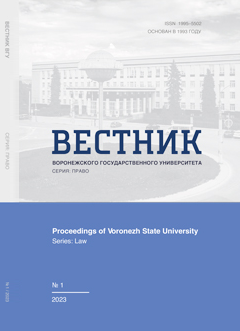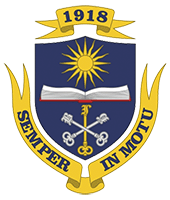Автоматизация судебной автороведческой экспертизы: проблемы и перспективы
Аннотация
Рассматривается процесс автоматизации судебной атрибуционной (автороведческой) экспертизы текстового материала. Одной из задач исследования является изучение тенденций, главенствующих в атрибуционной экспертизе, отечественной и иноязычной (преимущественно англоязычной), с целью анализа проблем и сложностей этого процесса, связанных с законодательной сферой. Посредством анализа норм существующего отечественного законодательства, а также некоторых прецедентов североамериканского и западноевропейского права, с одной стороны, и методико-технического состояния атрибуционной науки разных научных школ – с другой, делается вывод о перспективах судебной автороведческой экспертизы в России. Постулируется мысль о том, что на современном этапе развития науки и техники единственным путем развития для автороведческой экспертизы в нашей стране является путь интеграции квалификативных и квантитативных методов анализа.
Скачивания
Литература
Authorship Identifi cation of a Russian-Language Text Using Support Vector Machine and Deep Neural Networks / A. Romanov, A. Kurtukova, A. Fedotova et al. // Future Internet. 2021. Vol. 13, iss. 1. 3. 16 p.
Baranov A. N. Introduction to Applied Linguistics : Study Guide. Moscow : Editorial URSS, 2001. 360 p.
Campbell L. The Sophisties and Polilicus of Plato. Oxford : Clarendon, 1867. 170 p. Coulthard M. Author identification, idiolect, and linguistic uniqueness // Applied Linguistics. 2004. No. 24 (4). P. 431–447.
Encyclopedia of Forensic expertise / eds. T.V.Aver'- yanova, E. R. Rossinskaya. Moscow, 1999. P.177.
Filippov A. G. On the concept and classification of forensic expertise // Actual problems of forensic support investigation of crimes : Proceedings of the Academy. Moscow : Publishing House of the Ministry of Internal Affairs of Russia, 1996.
Galyashina E. I., Ermolova E. I. Linguistic and criminalistic authoship opportunities for written and oral texts. Moscow, 2005. P. 20–22.
Goroshko E. I. Forensic classification examination : problems of establishing the gender of the document author // Theory and practice of forensics examination. Khar'kov : Pravo, 2003. Vol. 3. P. 221–226.
Integrated methodology for the production forensic authorship examinations : Methodological recommendations / I. I. Rubcova, E. I. Ermolaeva, A. I. Bezrukova et al. Moscow : EKU MVD of Russia, 2007. 192 p.
Ionova S. V., Ogorelkov I. V. Personality speech diagnostics in author identifi cation based on gender parameter : quantitative approach // Science Journal of Volgograd State University. Linguistics. 2020. Vol. 19, no. 1. P. 115–127. DOI: https://doi.org/10.15688/jvolsu2.2020.1.10 Juola P.
Authorship Attribution // Foundations and Trends in Information Retrieval. 2006. Vol. 1, no. 3. P. 233–334.
Khmelev D. V. Lingvoanalizator. Moscow, 2002. URL: http://www.rusf.ru/books/analysis/
Komissarov A. Yu. Forensic study of written language. Moscow : EKC MVD of Russia, 2000. 126 p.
Koppel M., Schler J. Exploiting Stylistic Idiosyncrasies for Authorship Attribution // Proceedings of IJCAI'03 Workshop on Computational Approaches to Style Analysis and Synthesis. 2003. No. 69. P. 72–80.
Linguistic Modeling as a Basis for Creating Authorship Attribution Software / A. Khomenko, Yu. Baranova, A. Romanov, K. Zadvornov // Computational Linguistics and Intellectual Technologies : Proceedings of the International Conference “Dialogue 2021”. Moscow, June 16–19, 2021. URL: http://www.dialog-21.ru/media/5315/khomenkoaplusetal048.pdf
Litvinova T. A., Gromova A. V. Current Problems of Forensic Authorship Analysis and the Possibility of Their Solution with the Use of Computer Methods : Problems and Prospects // Science Journal of Volgograd State University. Linguistics. 2020. Vol. 19, no. 1. P. 77–88.
Marusenko M. A. Attribution of Anonymous and Pseudonymous Texts as a Typical Pattern Recognition Problem. Leningrad : Leningr. University publ., 1990. 164 p.
McMenamin G. R. Forensic Linguistics : advances in forensic stylistics. 2002. 331 p.
Moiseeva T. F. Forensic examinations: a study within the framework of forensic science and forensic examination // Criminal justice : problems of theory and practice. 2016. No. 1. P. 50–51.
Overview of the RusProfi ling PAN at FIRE Track on Cross-genre Gender Identification in Russian / T. Litvinova, F. Rangel, P. Rosso et al. // Working notes of FIRE 2017 – Forum for Information Retrieval Evaluation. Bangalore, India, 8th–10th December 2017. 2017. Vol. 2036. P. 1–7. URL: http://ceur-ws.org/Vol2036/T1-1.pdf
Radbil T. B., Markina M. V. Probabilistic-Statistical Models in Conducting Authoring Expertise of Russian Texts // Political Linguistics. 2019. No. 2 (74). P. 156– 166.
Rogov A. A., Kulakov K. A., Moskin N. D. Software support in solving the problem of text attribution // Programmnaya Ingeneria. 2019. Vol. 10, no. 5. P. 234– 240.
Rossinskaya E. R. Forensic examination in civil, arbitration, administrative and criminal proceedings / Russian Federal Center for Forensic Science under the Ministry of Justice of the Russian Federation. 3rd ed., add. Moscow : Norma : INFRA-M, 2014. 735 p.
Shevelyov O. G. Methods of automatic classifi cation of texts in natural language : Textbook. Tomsk : TML-Press, 2007. 144 p.
Stamatatos E. Authorship attribution using text distortion // Proceedings of the 15th Conference of the European Chapter of the Association for Computational Linguistics, 2017. Vol. 1, Long Papers. P. 1138–1149.
Timashev A. N. Atributor : Version 1.01 : Description of the program. Moscow, 1999–2007. URL: http://www. textology.ru/atr_resum.html
Vul S.M. Forensic Attribution Identification Examination : Methodological Basics : Methodological Manual. X. : HNIISE, 2007. 64 p.
Wright D. Using word n-grams to identify authors and idiolects: A corpus approach to a forensic linguistic problem // International Journal of Corpus Linguistics. 2017. No. 22 (2). P. 212–241. URL: https://benjamins.com/#catalog/journals/ijcl.22.2.03wri/details
Zaharov V. N. The program of supporting systems for the attribution of articles by F. M. Dostoevsky // The works of PetrSU. Petrozavodsk, 2000. Vol. 9. P.113– 122.










